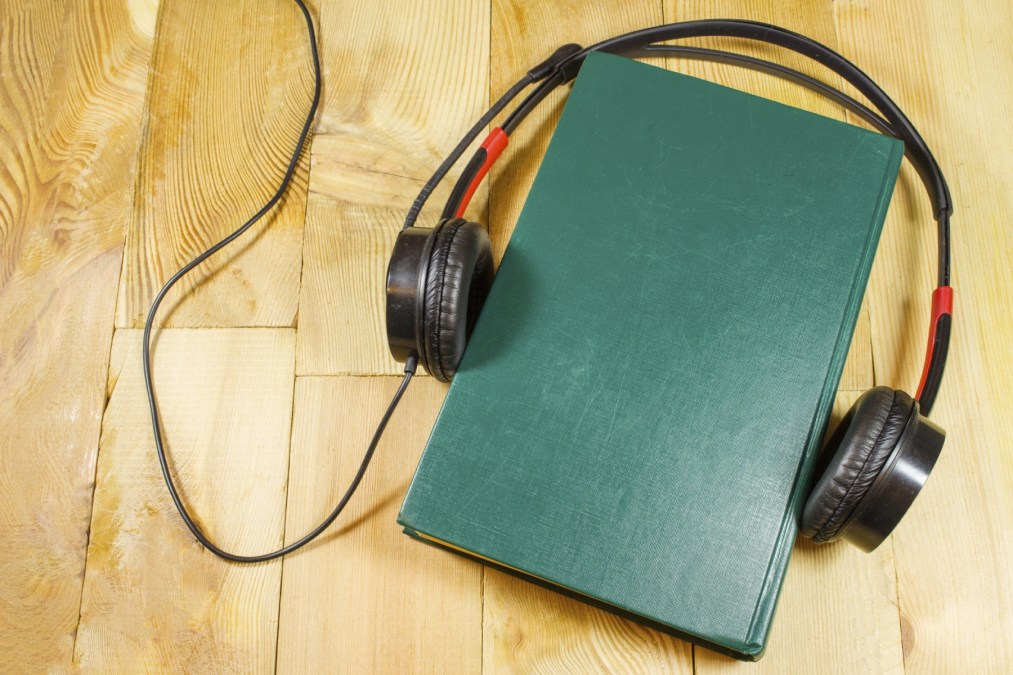Audiobooks can reach students who struggle with reading

Teachers at Fairfax County Public Schools in Virginia say that audiobooks are improving access to grade-level content and helping students develop a love of reading that motivates continued improvement.
Two assistive-technology teachers recommended the use of audiobooks in a recent webinar hosted by edWeb.net and presented by Terrie Noland, vice president of educator initiatives at Learning Ally, a nonprofit organization that specializes in audiobooks for students with dyslexia and other learning disabilities.
The teachers — Jenn Regardie and Jennifer Carr — said their district, which has 180,000 students and is one of the largest school districts in the U.S., is finding great success with assistive technologies and audiobooks in particular.
Fairfax County Public Schools’ students are tremendously diverse across income level, spoken languages and several other dimensions. About 15 percent of its students are classified as having special needs. The teachers urged other educators to do their best to accommodate the special needs of these students.
FCPS has 30 “assistive technology resource” teachers, each of whom rotates between seven to 10 schools.
While at the schools, these teachers coordinate with the special education teachers, speech/language pathologists, and others, and also spend time with individual students and student groups. They attend meetings and training sessions at district offices.
Regardie and Carr said finding allies at each school they work with has been a key to successfully using assistive technologies to help students. As teachers begin to achieve success with individual students, those success stories can be documented and shared in other classes, leading to more widespread use of assistive technology and recognition of its impact.
To find the right resources for struggling readers in their district, the assistive technology teachers rely on the Universal Protocol for Accommodation in Reading, or uPAR, an informal screener that takes about 20 minutes to administer. The results enable teachers to identify audiobooks at a level that students can comprehend, and for many struggling readers the level at which they can understand spoken content is higher than the level at which they can read printed text.
Audiobooks can therefore provide more equitable access to grade-level content and enable struggling readers to share more of the engagement, pride, and enjoyment of reading that their classmates experience, the speakers said. For some students, they added, an audiobook is the first book they’ve ever been able to complete, and continued access can positively influence their achievement and attitudes. One student who’d listened to an audiobook reportedly said, “I never realized I liked books.”
Another advantage of audiobooks is that they are accessible at home and on smartphones, not just in the classroom. However, the assistive technology teachers noted that students also need to be taught the fundamentals of reading by their classroom teachers, and that may involve the use of printed texts at the students’ instructional level, which may be lower than the level of their audiobooks.
Other assistive technologies, such as text readers that can be used with other types of documents, and virtual assistants such as Siri or Alexa, should also be part of the mixture of resources that are available for struggling readers to use in order to succeed in school, the teachers said.
For assistive technologies to have maximum impact in their districts, the assistive technology teachers said building relationships is extremely important. Social media can be an assistive technology in that regard, as it helps staff members communicate with teachers in different schools, and with the parents who also have a crucial role in helping their children become lifelong learners.
About the presenters
Jenn Regardie has worked in special education in Fairfax County Public Schools for 18 years. She started her teaching career in elementary school but has spent the majority of her time in FCPS as an assistive technology resource teacher with a focus on supporting the use of assistive technology in middle and high schools. She helps teachers, staff, and students with the implementation of audiobooks through Learning Ally and other tools to support reading. She is also the parent of a young reader who discovered a love of reading through the use of audiobooks. Jenn has an M.Ed. in special education from Lehigh University and a B.S. from Ithaca College.
Jennifer Carr has a passion for assistive technology. She regularly works with schools and students in preschool through 12th grade to find the right assistive-technology tools for those who require it. Jennifer supports students, teachers and staff in the use and implementation for all levels of diverse learners. She has taken on many leadership opportunities within Fairfax County Public Schools. One of them has been working with Learning Ally to support students within FCPS. Jennifer has presented at local, state, national and international conferences in the area of AT. She is co-author of Developing Your Assistive Technology Leadership: Best Practices for Success.
Terrie Noland’s greatest strengths lie in the ability to motivate, inspire, and create enthusiasm in others to be passionate educators that support the diverse needs of students. Terrie serves as the vice president of educator initiatives for Learning Ally, where she works to develop engagement programs, professional learning services and communities for educators. Her passion is working with educators to create dynamic classrooms, and recognizing educators in their tremendous efforts. Terrie has more than 25 years of experience as both a motivational leader and developer of content for educators and administrators. Her focus for the past six years has been on the pedagogical practices needed to create effective environments for struggling readers and students with dyslexia. She has the opportunity to lead and facilitate groups numbering in the thousands, helping to build better understanding of working with struggling readers and students with dyslexia. Terrie is certified as an academic language practitioner and is currently working towards a Ph.D. in literacy, with an emphasis in educational leadership from St. John’s University.
Join the Community
Empowering Struggling Readers is a free professional learning community on edWeb.net that provides educators, administrators, special educators, curriculum leaders, and librarians a place to collaborate on how to turn struggling readers into thriving students.
The edWeb webinar referenced above, sponsored by Learning Ally, can be found here.




